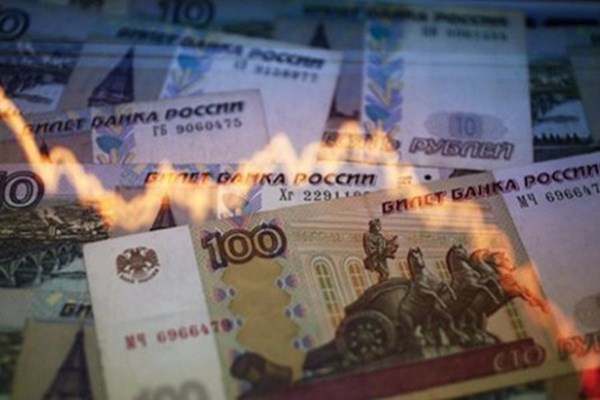Kremlin considers classifying data on the state of Russian economy
The record-breaking collapse of the Russian economy since the 1990s instead of the promised "breakthrough" to growth rates caused "cognitive dissonance" among Russian officials, who began to look for ways to hide uncomfortable figures from the public.
Reuters reports, citing sources familiar with the situation, that a number of government officials from the team of Russian Prime Minister Mikhail Mishustin proposed to classify the economic statistics for April, when the country closed stores, suspended production, and oil prices slid to the levels which caused the collapse of the Soviet Union.
"Publishing figures and facts about the real situation in the economy is more unpleasant for them than the situation itself," explains a Reuters source familiar with the situation in Rosstat, Russian Federal State Statistics Service. At some point it seemed to them that the key problem was related to Rosstat. They believe in one thing: as long as something is not published, it does not exist."
As a result, a compromise decision was made: not to classify the information, but to publish the data as late as possible in the evening, or at night. The calculation of the PR unit of the government is to "minimize attention to these figures," said a senior source in one of the federal agencies.
The request has been fulfilled. Since the beginning of May, official statistics of the Russian Federation and reviews demonstrating the impact of coronavirus pandemic and the restrictive measures, instead of the traditional 4pm get published under the cover of the night.
On May 21, Rosstat published April industrial production data only at 21.00. At the same time last week, an operational report on the socio-economic situation was published, in which, among other things, Rosstat reported on the collapse of retail sales by 23% and the jump in unemployment by almost a million people.
"Late publication of data implies that journalists have limited time to prepare and work with numbers. The expectation is that if the numbers come out at 7-8 p.m., the period for publication is shorter, the journalists will not have time to talk to the experts," the source explains to Reuters.
"Rosstat is not allowed to publish data or is required to publish the data later . Now they try at least the same day, but in the evening, so that there was no news in the morning," said another source of the agency.
A source close to Rosstat gave the same explanation to the Russian news agency Vedomisti.
The Russian Ministry of Economic Development followed Rosstat and moved the time when it publishes its data to the end of the day. Data showing the fall in GDP in April by 12% appeared at 10:30pm. The macro forecast for the current year, in which the Ministry of Economic Development predicts a loss of 5% of GDP, a budget deficit of 8.5% of GDP, a double-digit collapse of investments and a new fall in the ruble (up to 76 per dollar) appeared even later - at 11pm.
On Tuesday evening, Rosstat announced that it was introducing a new fixed time for the publication of statistics – 7pm. "The complicated working conditions affected the duration of the calculations, and in some cases required additional verification of the baseline data and calculations," the agency explained.
Last year, the Russian authorities refused to publish monthly statistics of real incomes of the population after the incomes fell for 5 consecutive years. The officials stated that the numbers did not reflect the real state of affairs.
